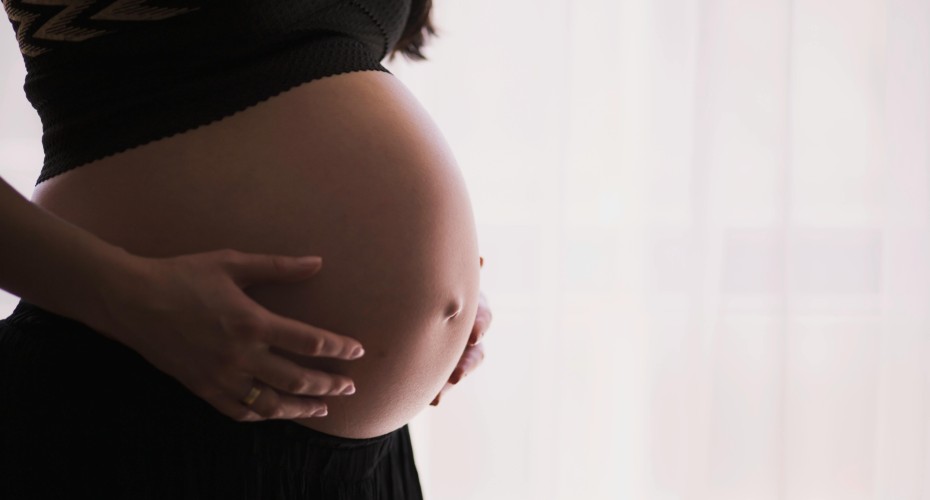Research empowers midwives to prevent urine leakage, which affects one in three post birth

The APPEAL research programme provides the best available evidence of this midwife-led support. It has the potential to benefit tens of thousands of women every year in the UK
A new study has found that community midwives could help prevent incontinence in women post-birth through a midwife training programme that increases awareness of how and why to perform pelvic floor muscle exercises.
The NIHR-funded APPEAL (Antenatal Preventative Pelvic Floor Exercises And Localisation) research, led by the University of Birmingham working with the University of Exeter and others, is now published in BMJ Open. It set out to understand how midwives can best provide pelvic floor muscle exercise advice to support to all women during pregnancy and help prevent the one in three women that are affected by urinary incontinence post-birth.
Since the APPEAL research was completed, nearly 200 midwives and antenatal care staff, from 23 NHS Trusts, have been trained to provide pelvic floor muscle exercise advice and support to pregnant women. If this training is fully rolled out around the UK, then tens of thousands of women could benefit each year. This now needs to be fully resourced to allow midwives time to attend training and implement into antenatal care.
The pilot randomised control trial was conducted in 17 midwifery teams. It examined outcomes in a group of 95 midwives in eight teams who received the APPEAL training on how to teach pelvic floor muscle exercises, and a control group of 91 midwives in nine teams who did not receive the training.
The researchers found that APPEAL-trained midwives were able to provide advice and education and teach pelvic floor muscle exercises to pregnant women. The study also found that more of these women (65% in APPEAL group vs 38% in control group) reported they received support.
Of women seen by an APPEAL-trained midwife, 50% undertook the exercises during their pregnancy in a manner likely to prevent leakage compared to 38% of women in the control group. Although this was a small pilot trial the researchers did observe that 10% fewer women who worked with an APPEAL-trained midwife reported urinary incontinence after giving birth, than among women in the control group.
Lead author Professor Christine MacArthur, Professor of Maternal and Child Epidemiology at the University of Birmingham said:
“Over one third of women are affected by urinary incontinence after giving birth, and despite it being widely acknowledged as a major health challenge not nearly enough has been done to support the huge numbers of women coping with this issue. Our research has established the best possible evidence that providing training and expertise to midwives has the potential to improve many women’s lives after they have given birth.
“Our pilot trial saw that APPEAL trained midwives led to an increase in explanations about how to do pelvic floor muscle exercises, with an increase in women reporting they had done these exercises during their pregnancy. This represents the best available evidence that providing this training to midwives could have a substantial positive impact in reducing urinary incontinence for women around the UK and elsewhere in the world.”
Midwife Dr Ellie Jones, Research Fellow at the University of Birmingham and part of the APPEAL project team
“Urine leakage is such an important issue for women’s quality of life. The APPEAL programme of research provides the best available evidence about how to train midwives to teach and support women to do their pelvic floor exercises during their pregnancy to prevent urinary incontinence. Urinary incontinence really can cause misery and have a huge impact on lives, particularly when it’s long-term, so preventing this issue for many women would be a great result.”
In the APPEAL research programme, the team revealed that both pregnant women and midwives lacked confidence about what could be done to prevent leakage.
Physiotherapist Dr Victoria Salmon, research fellow at the University of Exeter where the APPEAL training programme was developed, said: “Women did not know how to do the exercises and were reluctant to ask, and midwives did not know how to teach the exercises, so did not raise the topic. This led to a lack of information about the benefits of these exercises during pregnancy and how they can reduce the risk of developing leakage, known as urinary incontinence.”
The research programme began in 2016, and in 2022 the UK Government decided to roll out perinatal pelvic health services. This change means that it is not possible to follow up on the pilot study with a larger scale trial, as there’s no longer an untrained control group available. The research was supported by the NIHR Applied Research Collaboration South West Peninsula (PenARC), with implementation support provided by Health Innovation South West.
The study is titled ‘ Antenatal pelvic floor muscle exercise intervention led by midwives in England to reduce postnatal urinary incontinence: APPEAL feasibility and pilot randomised controlled cluster trial’, and is published in BMJ Open.
“For me pelvic floor was like Fight Club – nobody talked about it or even knew what it was”
For Emma Crookes, the first sign of incontinence began in pregnancy with her first child. What started as an inconvenient and embarrassing leak quickly spiralled into a life-changing issue that spanned six years of constant fear of public wetting, despite wearing incontinence pads. .
After a GP told her the symptoms were to be expected after giving birth twice in 11 months, Emma tried to adapt to her ‘new normal’ for a number of years before she was finally linked to specialists who trained her in pelvic floor exercises, ending her ordeal.
Emma’s hyperemesis (severe pregnancy sickness) during her first pregnancy triggered her incontinence after nine weeks. “Urinary incontinence is one of those things you don’t hear about until it happens to you. It completely changed my whole life. I got to a point where I had to change my knickers before work – and then my trousers.”
Despite seeing her midwife regularly, Emma, 38, from Barnsley, lacked information around pelvic floor muscles and exercises. “For me pelvic floor was like Fight Club – nobody talked about it or even really knew what it was. In my antenatal classes they handed around leaflets on breastfeeding and safe sleeping. But there was only one on pelvic floor health and we were told we could ‘take a photo of it if we wanted.’ It just seemed optional and not very important.”
Emma, a professional advocate for perinatal and gynaecological health at NHS England, became pregnant again 11 weeks after giving birth to Isaac. Her incontinence continued into her second pregnancy with her daughter Harriet, now aged eight, and really impacted her quality of life. Constantly wet, she developed itchy and painful sores. Her GP prescribed a steroid cream with no examination. Emma felt dismissed and humiliated. She said: “When I told my GP I just kept on wetting myself, he told me ‘You’ve had two children in the last 11 months – what did you expect?’”
Eventually a different GP referred Emma to a specialist team. “Until then I had no idea urogynaecology even existed,” she said. “I felt like I was the only one experiencing these symptoms.” She was referred to a specialist pelvic health physiotherapist to strengthen her pelvic floor muscles. “The specialist physio explained all about pelvic floor muscles. By using equipment, she was able to teach me how to do pelvic floor exercises properly. I really stuck to my personalised programme and I noticed a difference within six weeks.”
“It’s so important for midwives to teach women about pelvic floor exercises during pregnancy. I endured six years of avoidable misery. I want to do everything I can to avoid other women suffering in the same way, and this research is so important in improving experiences, outcomes and the mental wellbeing of others, as well as awareness and education about this life course issue.”



